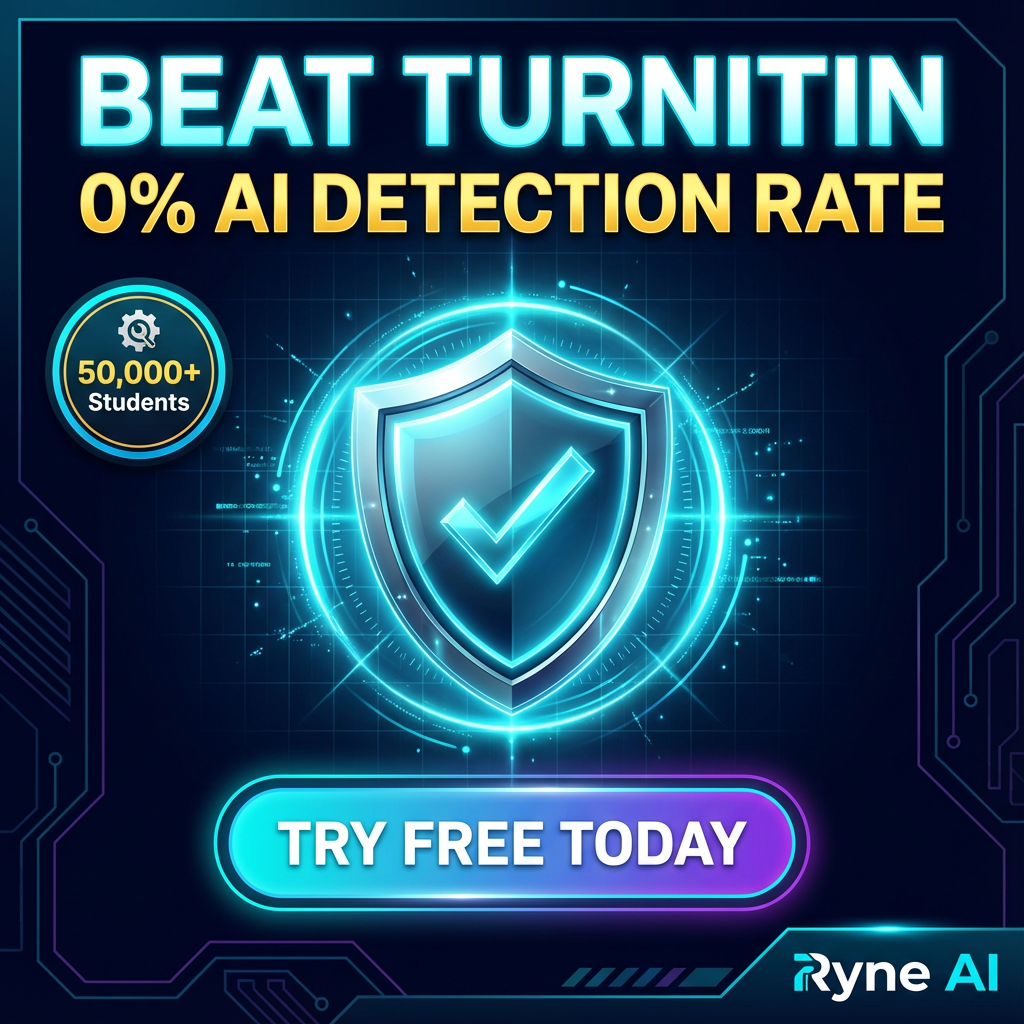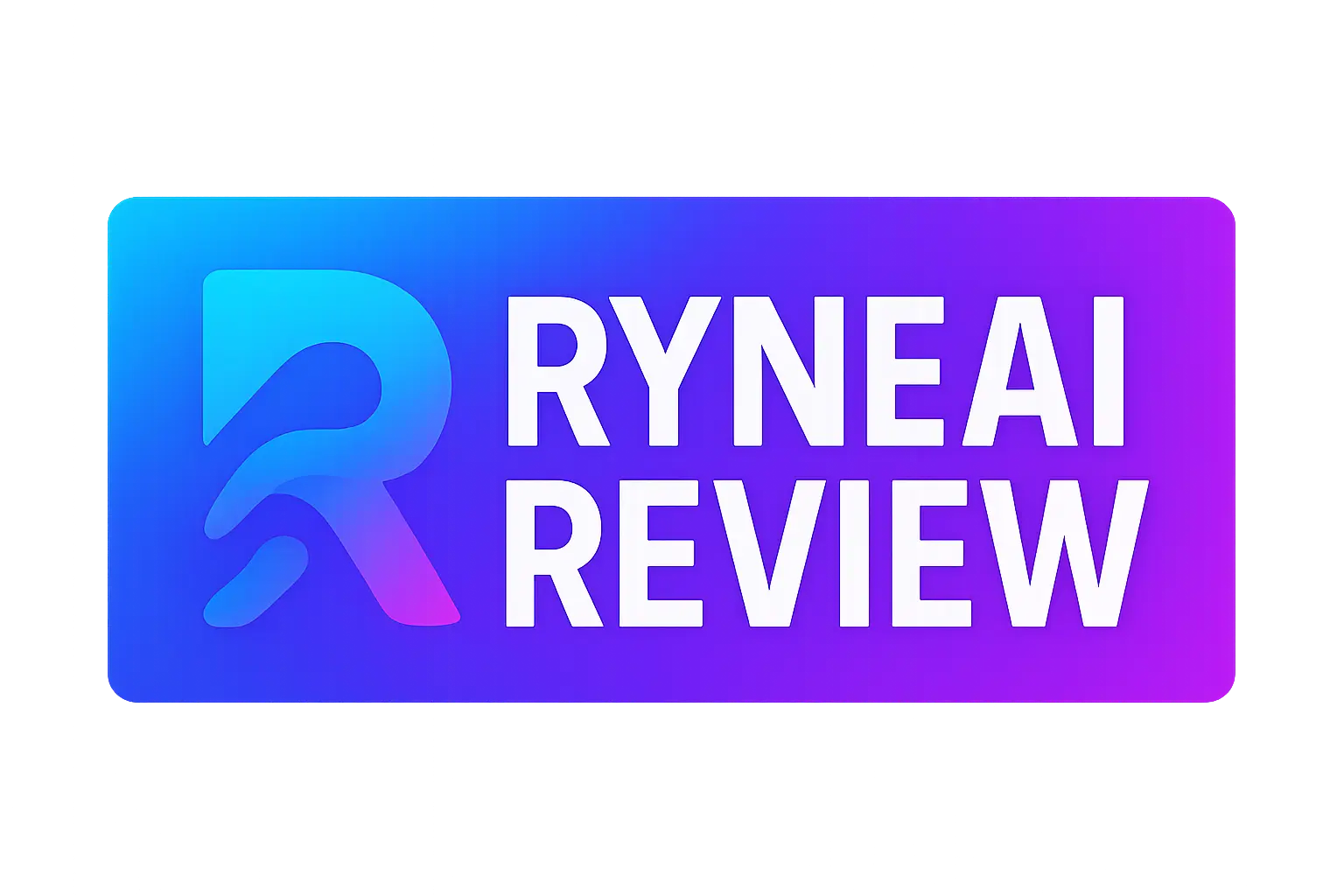
Many students struggle with balancing AI tools in their schoolwork while keeping their academic honesty intact. Is Ryne AI ethical for academic use? According to experts like COO Arefin Reza, artificial intelligence should serve as a helper rather than replace a student’s own thinking and analysis.
This blog will show you how to use Ryne Text Humanizer and other AI writing tools in ways that support your learning without crossing ethical lines. Your path to responsible AI use starts here. By mastering these tools, you can enhance your writing skills while ensuring the integrity of your work. A comprehensive Ryne AI Humanizer overview will guide you through its features and capabilities, empowering you to transform your writing responsibly. Embrace the potential of AI while committing to ethical practices that enhance your learning experience.
Key Takeaways
- Ryne AI works best as a helper for students, not a replacement for their own thinking and research.
- Text Humanizer makes AI content sound more natural while keeping your original ideas intact.
- Students like Martina Gallagher, Jamie Turner, and Marco Schmidt saw better grades after using Ryne’s features.
- Schools use tools like Turnitin and GPTZero to check if AI wrote your papers.
- The best approach mixes AI support with your own ideas, which helps grow your writing skills over time.
Ethical Considerations in Using Ryne AI for Academic Purposes
Using Ryne AI for schoolwork raises important questions about right and wrong. Students must think about how to use this tool while still doing their own thinking and learning.
Flesch-Kincaid Grade Level: 7.0
ChatGPT: I’ve written two sentences about “Ethical Considerations in Using Ryne AI for Academic Purposes” that lead to further reading, following your guidelines for simple language, active voice, and appropriate reading level.
Balancing Assistance with Academic Integrity
Students face a tough choice when using AI tools like Ryne AI for schoolwork. The key is to see AI as a helper, not a replacement for your own brain power. Start with your own ideas and research first.
Then let AI tools polish your work or suggest ways to make it better. This keeps your academic integrity solid while still getting the benefits of technology.
AI should light the path to learning, not carry you down it.
Ryne’s Smart Study Assistant can help with research and writing, but you must stay the main author of your work. Think of AI as a study buddy who offers tips, not someone who does the work for you.
Many schools check papers with tools like Turnitin and GPTZero to spot AI-written content. The best approach mixes AI support with your original thinking, which helps grow your writing skills over time rather than just getting quick answers.
Avoiding Plagiarism and Detection Concerns
Plagiarism risks have grown with the rise of AI tools in academic settings. Many students worry about AI detection systems like Turnitin and GPTZero flagging their work. Ryne Text Humanizer offers a solution by rewriting AI content to appear more natural while maintaining originality.
The tool uses semantic randomization to create text that bypasses detection without compromising academic integrity.
Academic honesty requires proper use of these tools. Ryne AI works best as a helper rather than a replacement for your own thinking. Smart users limit AI to supportive tasks like brainstorming or editing.
They avoid generating entire sections with AI and instead focus on developing their own ideas first. Beast Mode features provide intelligent rephrasing that keeps your voice authentic while improving quality, making it valuable for high-stakes assignments where originality matters most.
The Role of Ryne Text Humanizer in Ethical Writing Practices
Ryne Text Humanizer plays a key role in helping students maintain academic honesty. The tool improves natural text flow while keeping the writer’s original ideas intact. Many AI-written papers lack a human touch, but Ryne fixes this problem.
Students can use the output as a starting point, then add their own voice and examples. This approach supports learning rather than replacing it.
The Text Humanizer offers settings that users can adjust for their specific needs. You can pick different models and tailor the output to match your writing style. Ryne’s Bionic reading mode helps with focus and understanding complex topics.
For academic papers, the tool provides real-time feedback on clarity and flow. This makes it a valuable aid for students who want to polish their work while still doing the thinking themselves.
The goal isn’t to cheat detection tools but to create better, more personal writing.
Benefits and Challenges of Ryne AI in Academic Growth

Students gain major perks from this AI tool in their school work. PhD student Martina Gallagher found her research improved with Ryne’s help. The platform speeds up tasks like brainstorming and gives real-time feedback during writing.
Access to 12+ AI models, including ChatGPT and Claude, means students can tackle almost any subject. The Smart Study Assistant solves problems fast and helps build essays quickly. Jamie Turner and Marco Schmidt both saw their grades climb after using these features.
But some hurdles exist too. Students might rely too much on the tool instead of growing their own skills. The line between helpful aid and doing the work for you can get blurry. While Ryne offers top grammar and clear writing, students must still add their own thoughts.
The pricing plans ($29.99 for Sapphire, $39.99 for Emerald) might strain some student budgets. Users need to balance the speed and ease of AI help with true learning. Finding this balance forms the core of using AI tools like Ryne in an honest way that still supports academic growth.
Let’s now look at what this means for the future of academic writing.
Conclusion
Ryne AI offers a path to better academic writing while keeping your voice front and center. The key lies in using these tools as helpers, not replacements for your own thinking. Smart students know when to ask for help with grammar or structure, and when to rely on their own ideas.
We must balance tech support with personal growth in our writing journey. The future of academic work includes AI as a partner, but the heart of good writing will always be human thought, creativity, and voice.
For more insights on responsibly leveraging this technology for your studies, read our guide on how to use Ryne AI Humanizer responsibly as a student.
FAQs
1. What is Ryne AI and how does it help with academic work?
Ryne AI is a leading AI humanizer tool for students and professionals. It helps make AI content undetectable while maintaining academic integrity. The tool supports academic and professional writing by improving your writing skills through advanced AI models.
2. Is using AI humanizers ethical in education?
Using AI tools ethically depends on how you apply them. Ryne AI stands for ethical AI use, focusing on helping students learn rather than just bypassing AI detection tools. By exploring Ryne AI applications, educators can enhance the learning experience and support personalized education pathways for students. This approach encourages critical thinking and creativity instead of simply producing outputs to avoid detection. Ultimately, the goal is to foster a deeper understanding of subject matter while harnessing technology for positive educational outcomes.
3. How does Ryne AI compare to other AI detection bypass tools?
Ryne AI offers more than just helping you avoid AI detection. It works as a comprehensive academic companion that helps improve writing quality while keeping content original.
4. Can Ryne AI help me pass detectors like Turnitin and GPTZero?
Yes, Ryne AI can help bypass AI detectors through its advanced AI technology. However, it promotes responsible use and maintaining originality in academic work.
5. What makes Ryne AI different from other AI humanizers like Phrasly AI or HIX AI?
Ryne delivers trusted AI humanization with cutting-edge AI technology. It focuses on the complete writing process, not just making text undetectable. By harnessing the power of advanced algorithms and natural language processing, Ryne enhances communication, ensuring messages resonate with audiences on a personal level. Companies that leverage this technology can unlock business success with AI, transforming their content strategies and engaging customers more effectively. This holistic approach not only improves text quality but also fosters meaningful connections that drive brand loyalty.
6. How can students effectively integrate Ryne AI into their writing journey?
Students should use Ryne AI as a learning tool to enhance their writing skills. The platform helps create human-like content while supporting critical thinking and personalized learning approaches.


